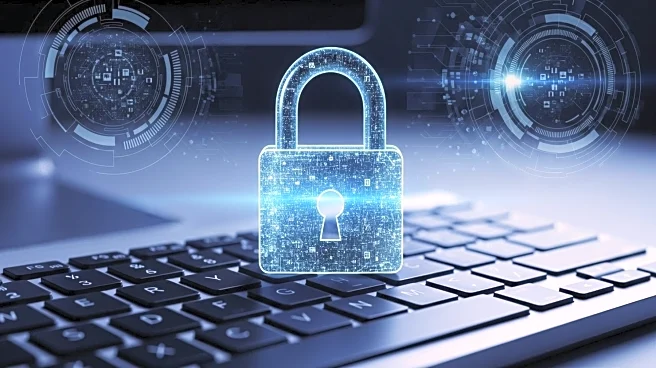What's Happening?
A recent study by Resecurity highlights the ongoing risk posed by legacy Windows protocols, specifically LLMNR and NetBIOS Name Service, which continue to expose networks to credential theft. Attackers on the same local network can capture usernames and password
hashes using tools like Responder, potentially leading to unauthorized access and privilege escalation within corporate systems. Researchers recommend disabling these protocols, blocking UDP port 5355, enforcing SMB signing, and using Kerberos authentication to mitigate these risks. Additionally, Fortra has acknowledged a critical vulnerability in its GoAnywhere MFT file-transfer software, which has been actively exploited. This flaw has been linked to ransomware campaigns by the Microsoft-tracked group Storm-1175, raising concerns about how attackers accessed a private key believed to be held only by Fortra.
Why It's Important?
The exposure of credential theft risks through legacy Windows protocols underscores the need for organizations to update and secure their network configurations to prevent unauthorized access. The exploitation of Fortra's GoAnywhere vulnerability highlights the persistent threat of ransomware attacks, which can lead to significant data breaches and operational disruptions. These developments emphasize the importance of proactive cybersecurity measures and the need for organizations to stay vigilant against evolving threats. The impact of these vulnerabilities is significant, as they can lead to financial losses, reputational damage, and potential legal consequences for affected entities.
What's Next?
Organizations are likely to review and update their network security protocols to address the risks associated with legacy Windows protocols. Fortra may face increased scrutiny and pressure to enhance the security of its software products and prevent future vulnerabilities. Cybersecurity experts and agencies like CISA will continue to monitor and report on emerging threats, urging companies to implement recommended security measures promptly. The ongoing threat landscape may drive further innovation in cybersecurity solutions and increase demand for security services.
Beyond the Headlines
The ethical implications of exploiting vulnerabilities in widely used software highlight the need for responsible disclosure and collaboration between security researchers and software vendors. The legal ramifications for companies failing to protect sensitive data could lead to stricter regulations and compliance requirements. The cultural shift towards prioritizing cybersecurity in corporate governance may influence long-term strategies and investments in technology infrastructure.

















